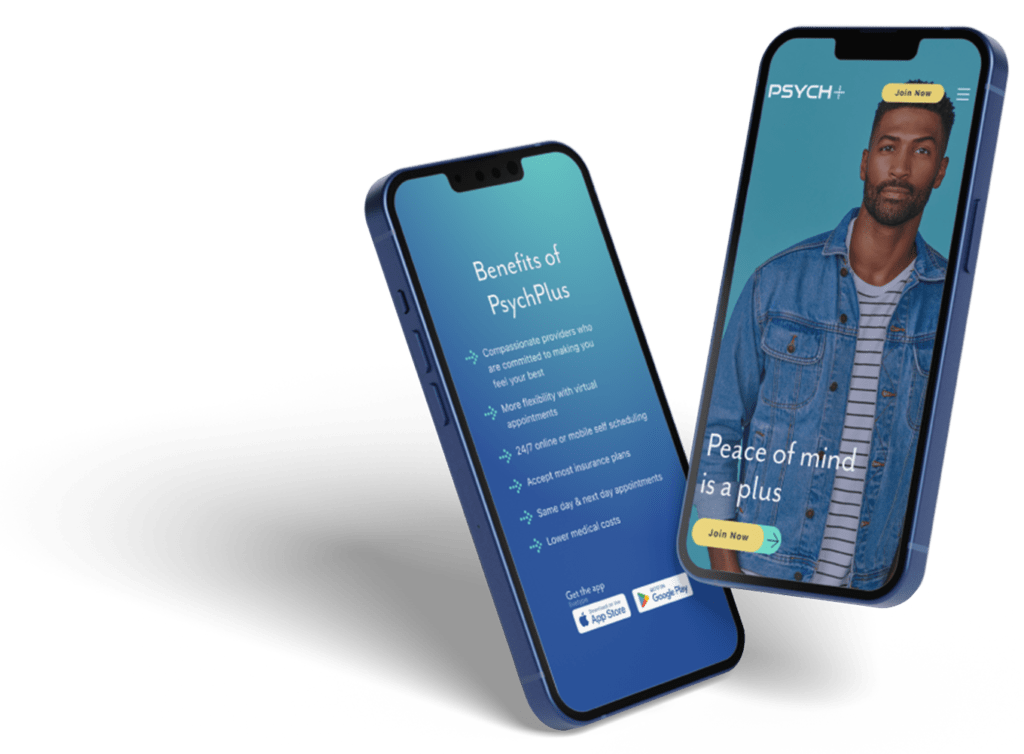Dementia Psychiatrist in College Station
Welcome to PsychPlus in College Station, where our expert psychiatrists offer compassionate and specialized cognitive care, supporting individuals and families facing the challenges of dementia.
Cognitive Wellness Experts
Dementia Care Excellence
Caring Cognitive Solutions
Dementia Expertise Hub



Why Choose Psych Plus for Dementia Care:
At Psych Plus, we recognize the significant impact of dementia on individuals and their loved ones. Our team of dedicated, board-certified psychiatrists specializes in providing comprehensive care tailored to address the unique challenges associated with dementia.

Dementia Expertise
Our psychiatrists in College Station have extensive experience in diagnosing and managing dementia. They remain up-to-date with the latest advancements in dementia care to ensure you receive the most effective and evidence-based treatment available.

Individualized Care
We believe in creating personalized care plans that consider the specific needs and circumstances of each patient. Our psychiatrists work closely with you and your family to develop a customized treatment approach that maximizes quality of life.

Cutting-Edge Interventions
Psych Plusis committed to offering the latest and most innovative treatments for dementia. Whether it involves medication management, behavioral interventions, or other therapeutic techniques, we utilize a comprehensive range of strategies to address the various aspects of dementia.

Supportive Environment
We understand the emotional toll that dementia can take on both patients and their families. Our clinic provides a compassionate and understanding space where you can openly discuss your concerns, and we offer support to help you navigate the challenges of dementia.
Don’t delay seeking the high-quality panic disorder treatment you deserve. Contact Psych Plus today to learn more or schedule an appointment with one of our top-rated panic disorder psychiatrists in College Station, Texas. Your path to a more peaceful and fulfilling life begins here.
Most Insurances Accepted


Benefits of PsychPlus
Compassionate providers who are committed
to making you feel your best
More flexibility with virtual appointments
24/7 online or mobile self scheduling
Accept most insurance plans
Same day & next day appointments
Lower medical costs


Help reimagine access to modern and accessible mental healthcare.


Warning signs of dementia
Dementia is characterized by a range of warning signs that may indicate cognitive decline. Common early signs include memory loss, difficulty in finding the right words, challenges in planning and problem-solving, and changes in mood or personality. Individuals may also experience confusion in familiar settings, struggle with tasks that were once routine, and exhibit a decline in judgment. Recognizing these warning signs early on is crucial for prompt diagnosis and intervention. If you or a loved one is experiencing these symptoms, seeking medical advice for a comprehensive assessment is recommended.

Different Types of Dementia
Dementia encompasses various conditions characterized by cognitive decline and memory impairment. Different types of dementia are associated with distinct underlying causes. Some common types include:
What are the first-line treatment options for Dementia disease?
The first-line treatment options for dementia focus on managing symptoms and enhancing the individual’s overall quality of life. While there is no cure for dementia, various approaches aim to address cognitive decline and behavioral challenges.























